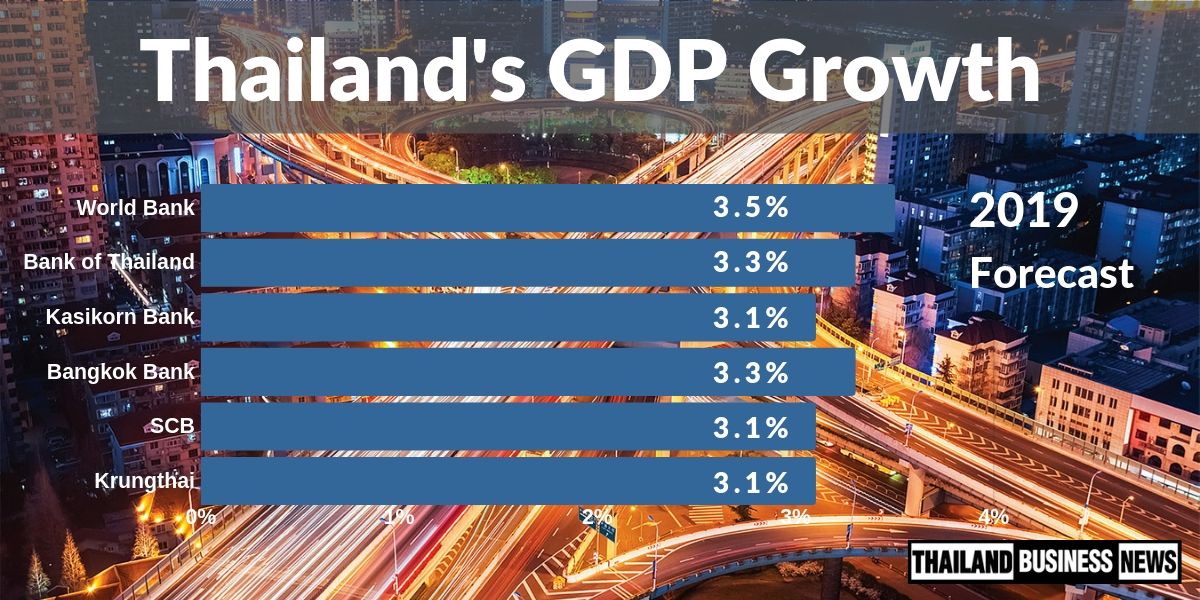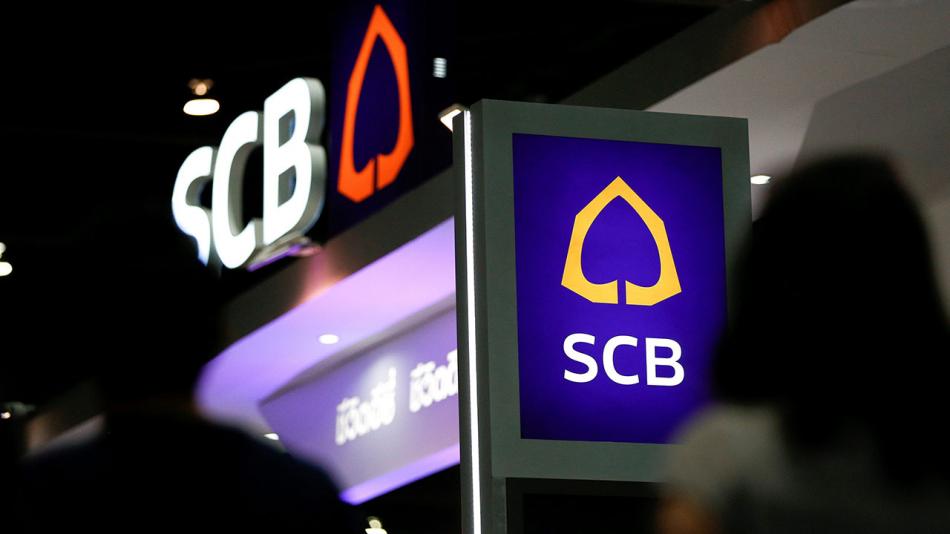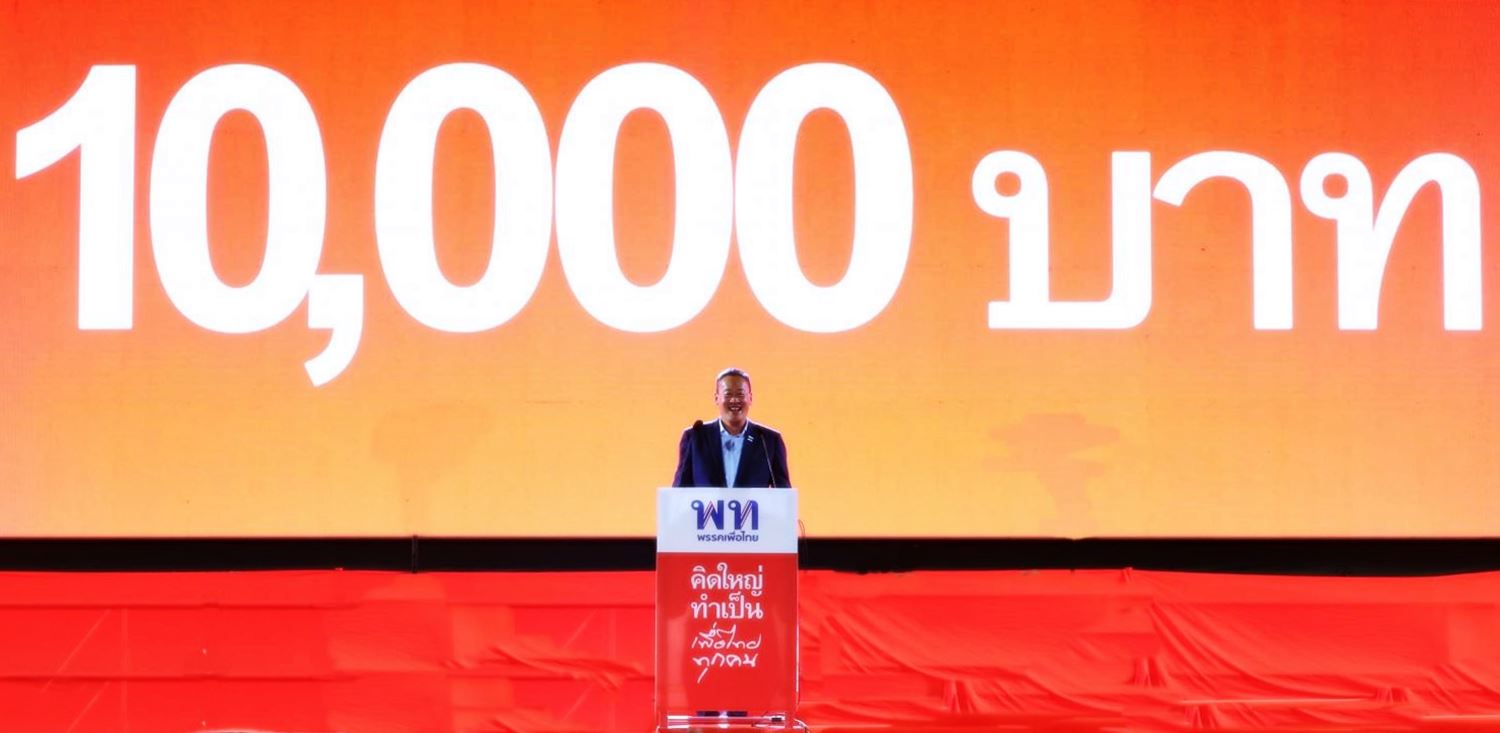Bangkok, (NNT) – Government investment remains the main factor in steering the economy as the trade war between the United States and China has affected exports, tourism and investment.
This has led to the Siam Commercial Bank’s (SCB) Economic Intelligence Center (EIC) cutting its forecast for the country’s 2019 economic growth to 3.1 percent.
The EIC has revised downwards its Thai economic expectations in 2019 to 3.1 percent from 3.3 percent, largely as a result of the trade war between the United States and China which grew more severe in May as the United States increased its tariff on Chinese goods worth 200 billion US dollars from 10 percent to 25 percent, while China has responded by raising its tariffs on the United States’ products worth about 60 billion US dollars to 5-25 percent.

This has caused the global economy to slow down exponentially and affect Thailand’s export sector. The EIC has slashed its export growth estimate for the full year to a 1.6 percent contraction from the 0.6 percent projected earlier.
This also affects private sector investment which is likely to slow accordingly. Employment in the industrial sector will also be affected by shrinking exports. The EIC has also lowered its forecast for the number of foreign arrivals to 40.1 million this year, representing 4.8 percent growth, from 40.7 million projected earlier.
The Thai economy is still mainly directed by government spending especially intensive infrastructure investment which has caused the construction industry to grow by approximately seven percent, along with the benefits of economic stimulus measures in the past. But risk factors from the trade war and political uncertainty are still pressures.
So the new government must accelerate the injection of about 20 billion baht to stimulate the economy at the end of the year to help the economy maintain expansion.
About the author
National News Bureau of Thailand. Public Relation Department of Thailand









